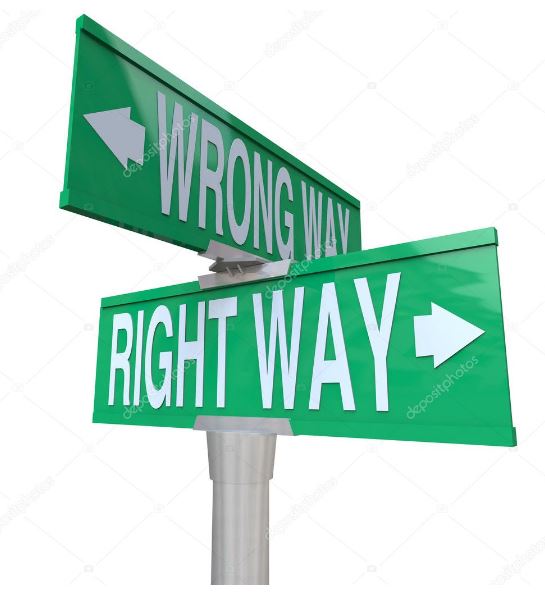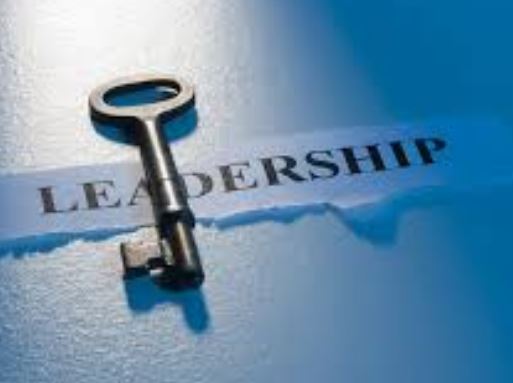by Ed Botti
February 11, 2023
***
During the MLB offseason, most diehard Baseball fans fill that void by spending the cold months consuming other sports content; either digitally or in person as a live spectator.
Personally, my offseason entertainment buck is spent on either catching up on the latest cop shows (NCIS, Chicago PD, Blue Bloods), car renovation shows, concerts, and of course other sports.
When it comes to the “other sports” in my life, I am a fan of the NY Football Giants, NY Rangers, and the Brooklyn Nets, along with MMA and even some golf on a relaxing Sunday afternoon, culminating with the great March Madness experience. Throw in some Ohio State football, and my winter is all set.
In the years just before Covid entered our world, the Brooklyn Nets built a very exciting young team basically out of the scrap heap. Brooklyn GM Sean Marks inherited a disaster from his predecessor, and somehow pulled a rabbit out of the hat, and built a fun and energetic young winning team, led by a career basketball teacher as its head coach, Kenny Atkinson.
I enjoyed them so much that my wife actually bought me a partial season ticket package, and I loved going to the Barclay’s Center and watching these “kids” play ball.
Suddenly, Brooklyn became a cool and trendy place for basketball, and the players in the league took notice.
That renaissance led to an unexpected series of transactions. Without getting too deep into it, they ended up gutting the young team, and bringing in superstar, high paid players, who were given the keys to arena and forced management to fire Atkinson and replace him with a head coach of their selection.
I may have been in the minority, but I did not like what was going on.
However, on paper, it looked great. Could I be wrong?
The national and local media bought in, TV ratings rose, attendance rose, and all of a sudden we started seeing celebrities at Brooklyn games, etc.
Just like baseball, the game is not played on paper. Soon enough, egos, odd behavior, selfishness, insubordination, suspensions, and even an anti-Semitic issue reared their ugly heads, and serious drama set in. Suddenly the feel good upstart Nets had become a complete and utter disaster, despite three of the world’s so called “best players” residing in Brooklyn.
This past week, it all came to a head ending 36 months (or so) of drama and lousy basketball. The big time “superstars” were dealt away in an effort to clean house, and move on from this very incongruous period in their history.
I found the aftermath very interesting, and ominous.
The vast majority of fans bailed on this experiment well over a year ago, and embraced the deals this week in a positive light. After all, it was that young team that brought us fun, excitement and a reason to watch, and of course happily spend. Which we all did. I know firsthand.
But there was also a segment of the fans, albeit a small but vocal segment, that looked at the whole debacle differently.
I found that some of the younger fans blamed the team ownership and management for the problems and failures. Not the disgruntled player(s) that actually were responsible for the behavior that caused the problems, notwithstanding the massive dollars they were compensated to actually not play.
For an excellent perspective, please read Mike Vaccaro’s piece https://nypost.com/2023/02/09/kevin-durant-kyrie-irving-turned-championship-dream-into-failure/
Which led me to remind myself that the world of sports is continuously changing, and more so lately. And with that Metamorphosis, issues, controversies, and problems that seem to regularly emerge are now viewed from a different perspective for some.
A complete shift from not only what many of us would consider right vs wrong, moral vs immoral, but also a complete shift in the way fans view athletes and their behaviors, and how fans consume sports.
The method of consumption is significant to teams and leagues because it leads to growth strategies.
Let’s face it, the leagues are more interested in finding new customers, than pleasing existing customers.
In the modern era of communication and technology sports organizations need to respond to these shifts. But are they over doing it?
The next time you go to a game, or tune in to watch a game take notice of the fans in attendance. You will see that many pivot between watching the action on the field, ice, or court and looking down at their phones... consuming some form of digital content.
A couple of years ago, MLB had to install additional nets to protect the fans in attendance. Why suddenly were people being hit with balls that were hit or thrown into the crowd, when in the past we just caught the ball? Because they weren’t watching the game, that’s why. They were most likely looking at their phones for one of many reasons.
What a waste. But also an opportunity.
Teams and leagues took notice of this years before. They realized that people would pay to come watch a live event, and still consume digital content.
To me it makes no sense. It’s like buying tickets to see U2, and bringing head phones to the show to listen to Led Zeppelin.
To continue their growth, sport organizations feel a need to have a heavy focus on the impact of new technologies -- not just in producing televised sporting events, but actually at the live game experience at the stadium.
These progressive trends are a direct result of the shifting landscape of modern society that goes well beyond the world of sports as a whole, and their fans specifically.
Sports fans are people who are fascinated with and follow a sport, team, and/or individual athlete.
Fans accentuate their individuality by partaking in devoted and frequent absorption of interests that correlate to the sport or team they are so fanatical about.
A generational shift has materialized among sports fans across the major professional leagues and even college.
Younger fans, AKA Millennials and GenZ, for some reason display a need and necessity to interrelate with sports content beyond live games, along with a robust penchant for additional individualized engagement with content; a shift from the customary fan and team/league connection that has existed for generations.
Personally, watching a game is all about focus. I watch a game to experience the highs and lows of the action. I could not care less about all of the other outside noise that has become a part of modern sports.
Show me the game, and then go away.
Apparently, I am in the minority or rapidly approaching it.
Industry statistics illustrate that four times as many Millennial and GenZ fans consume over three hours of non-game sports content each week compared to what Baby Boomers consume.
This has become a significant opportunity for sports leagues, teams and players to engage with them by delivering the content they want, such as behind-the-scenes footage, archived videos, bloopers, statistics, player data and background.
I don’t quite get it, but being a sports fan now involves much more than the game itself. Younger fans want to be connected to the storyline and share their own content in a community.
The concept of being a fan has been transformed over the past 15 or so years primarily because of numerous technological, cultural, and communicative expansions.
Additionally, many current athletes that grew up over the same period of time seem to diminish the critical importance of leadership.
Leadership is the "accomplishment of a goal through the guidance of human supporters. The person who successfully assembles their collaborators to achieve particular ends is a leader. A great leader is one who can do so day after day, and year after year, in a wide variety of circumstances" -- Harvard Business Review.
“Only three things happen naturally in organizations: friction, confusion, and under-performance. Everything else requires leadership. -- Peter Drucker
One might think Mr. Drucker wrote that specifically for modern athletes, or at least many of them.
For many of today’s younger sports fans, behavior like Kyrie Irving displayed in his three years as a Net becomes accepted and subordinate to being part of and contributing to a digital community.
For those of us that were around and remember sports and athletes from the 1990s and earlier, it becomes very hard to relate to what we see and hear today.
No longer does a player’s commitment to a team and program matter. In collegiate sports we now have the transfer portal, which in my opinion, will kill the NCAA.
Far too many players do not have loyalty anymore, and young fans have no problem with that.
For every Jose Ramirez, Tim Duncan, or Eli Manning there are 10 Kyrie Irvings, it seems. And that, is sad.
What happened to the Brooklyn Nets could happen to any team in today’s professional sports industry as long as teammates and other players continue to enable them, instead of impede them.
Do you think a Derek Jeter, a Jim Thome, a Michael Jordan, a Mark Messier, or a Mike Singletary would have allowed a Kyrie Irving to ruin their team?
No chance.
Sports have now become bereft of real leadership. Why? Because winning is not as important as it used to be. Remember all those 2nd and 3rd place trophies kids started getting 15 or 20 years ago? Well, we now see the results.
Today's Fact: in 1932 the Yankees were 62-15 at Yankee Stadium. Their .805 winning percentage is the highest in MLB history.

















You couldn't pay me to watch a basketball game.
im sure I’m going to sound like an old man but I gave up on the NBA when the team game became replaced with a series of one on ones and now highlighted with 40 - 3 point attempts per game. I don’t find the games enjoyable or exciting or even interesting, i still watch college ball though because I love basketball.
The players are a whole different thing. It seems that the players now make the trades and personnel decisions for a club. They determine where they are going to play and with whom. It’s about chasing championships and personal fame, to me it seems fraudulent.
The NBA is broken, as are the other sports, but the NBA…
Best line I read about Irving after the trade was nicknaming him "World B. Flat."
I live about a mile from Barclays, just a local bus ride. I'd love to go see the Nets play a couple of times a year, but tickets are something like $175 each. I don't care that much, and as I result, I never got invested in the team and don't watch them on TV. But obviously I'm not the marketing demographic for the NBA. I guess if they ever make the conference or league finals I'll watch (same with the Knicks, which were my team growing up). But otherwise, who cares?
MLB is all in on those infernal "phones" (really hand-held computers designed with the same attention-grabbimg features as slot machines and with hardware and OS features explicitly designed to spy on you). They make it difficult to even buy a ticket without one of those electronic toys. Fortunately, the option to purchase a ticket and have it printed at the box office on the day of the game still exists at the stadiums in my area (Camden Yards, Nationals Park) but if that goes away I will stop going to games because I do not own one of those devices and don't plan to buy one no matter how many businesses and governments coerce you into owning one and becoming…
Sorry, but I can't equate Dimaggio or Mantle to Irving.